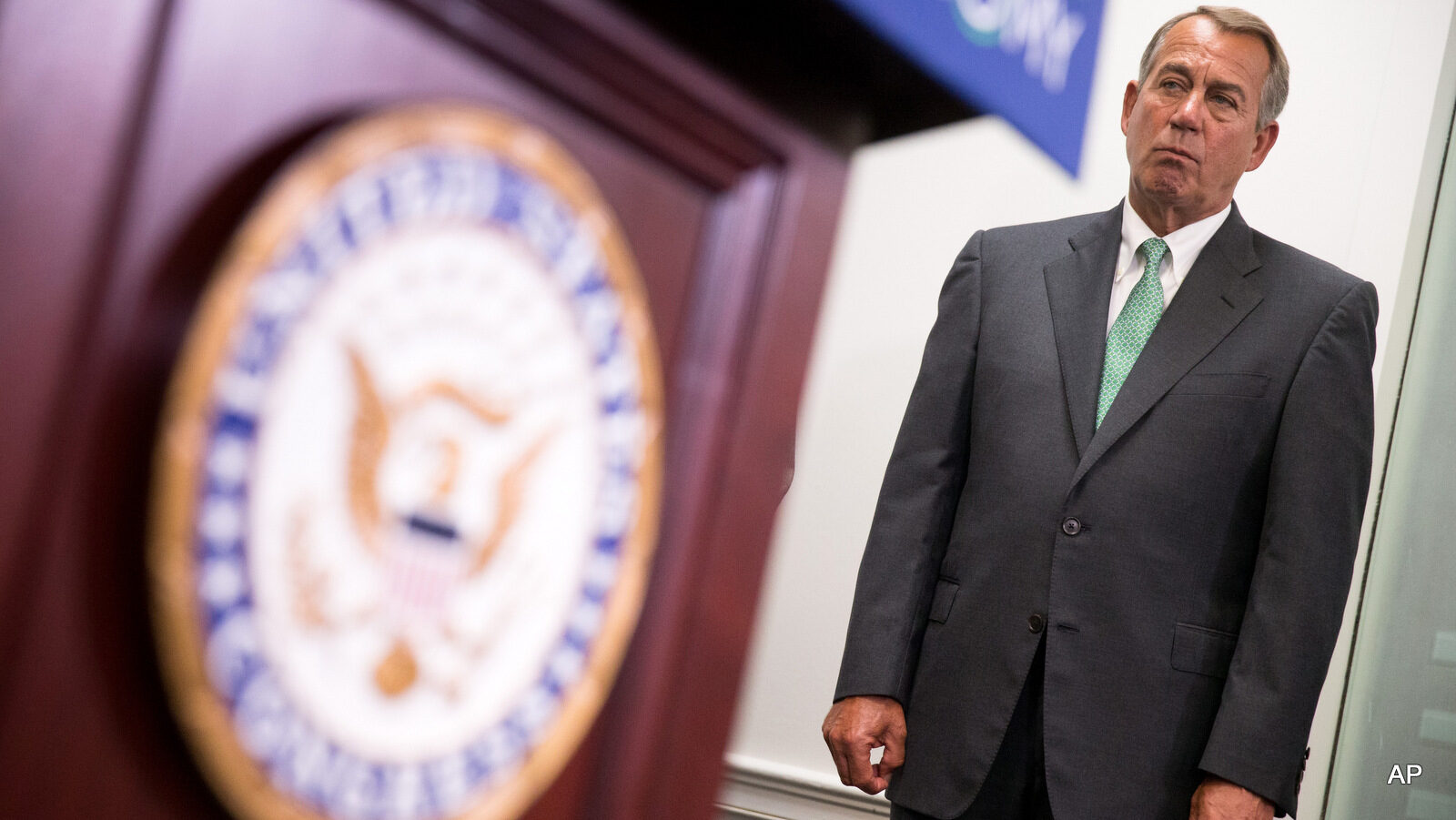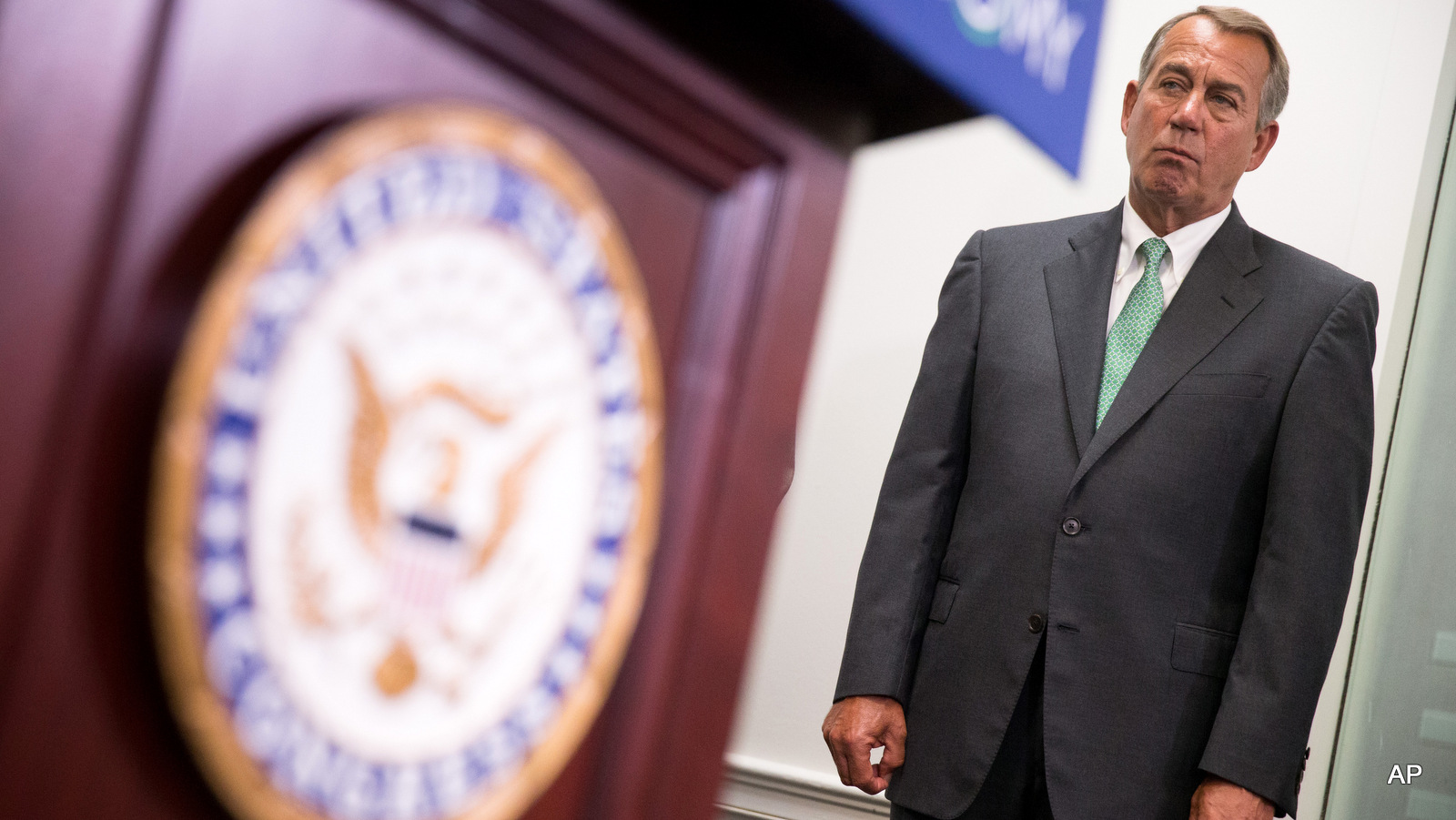
WASHINGTON — The United States is on the verge of signing an agreement with Iran that will mark the most significant geopolitical trend since President Richard Nixon visited the People’s Republic of China in 1972, which opened a pathway toward rapprochement, rather than confrontation, with the communist East Asian nation.
Likewise, the Iranian nuclear deal could mark the beginning of a completely different strategic vision for how the U.S. interacts with the Middle East, and herald a reprioritization of East Asia in its “pivot” out of the region, according to Trita Parsi, founder and president of the National Iranian American Council (NIAC), a nonprofit organization dedicated to strengthening the voice of Iranian-Americans and promoting greater understanding between the American and Iranian people.
“One guy at Brookings I think put it best and said, ‘This is not about going to bed with Tehran, it’s about finding a way to go out of bed with Saudi Arabia,’” Parsi said during a panel discussion on the pending deal hosted by NIAC on Thursday.
The P5+1 (the U.S., China, Russia, France and the United Kingdom, plus Germany) and Iran were due to sign a comprehensive agreement on Tuesday that would freeze Iran’s ability to create a nuclear weapon and start the process of sanctions relief. However, obstacles still remain. The agreement would be based on a framework announced in April, and according to the Arms Control Association, it would “be a net-plus for nonproliferation and will enhance U.S. and regional security.”
During the panel, “Beyond Centrifuges: The Geopolitical Implications of an Iran Deal,” Parsi said the U.S. needs to consider some cold, hard geopolitical facts in terms of the costs and benefits of maintaining hegemony in the Middle East.
“The cost of maintaining that hegemony is just skyrocketing over the last decade or so for many reasons, one being that the invasion of Iraq and the destruction of the Iraqi state has spread and exacerbated an already existing trend, which was that these states were becoming very troubled from inside anyways,” he explained.
Further, he said there are few benefits to the U.S. maintaining the level of hegemony it’s held over the region for the last few decades.
Though there is oil in the region, Parsi explained, the commodity is not the determining factor of American foreign policy that it once was, largely owing to growth in domestic production. And without oil playing such a pivotal role in foreign policy, he suggested that the goal of the U.S. is to remain “peerless” as a global power. That fight won’t be won in the Middle East, Parsi said, but in East Asia.
“There’s no peer competitor that is going to emerge out of the Middle East. They’re going to emerge elsewhere,” he said.
That being the case, Parsi asserted that the U.S. would have to rely on other “elements” in the region which are capable of playing a similar role. Iran, he said, could be precisely one of those “elements.”
The United States and Iran: An upcoming strategic alliance?
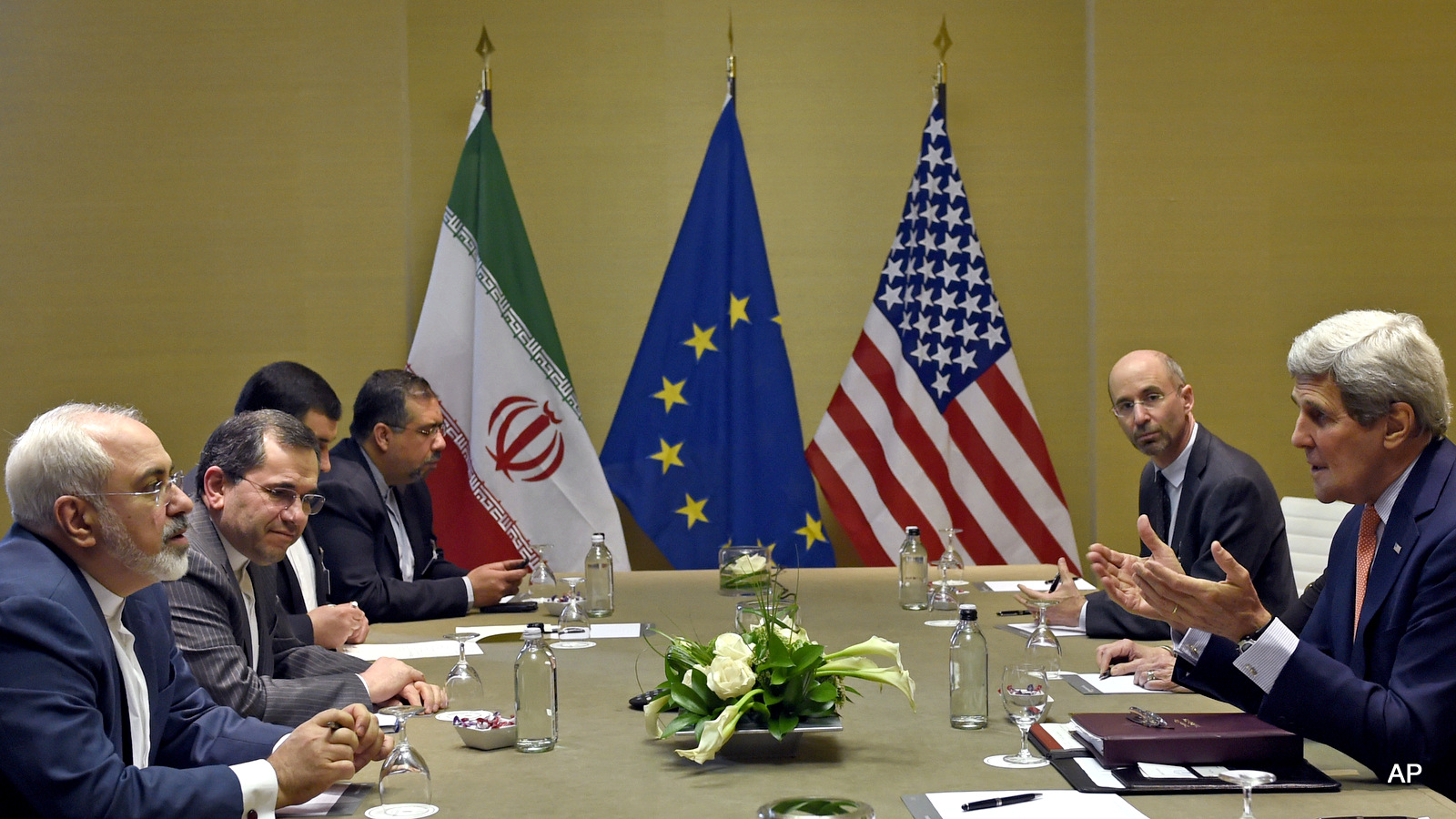
Trita Parsi argued that the current situation in the Middle East should be viewed through an apolitical lens. What’s unfolding, he said, can’t be changed by Democrats or Republicans.
“I wouldn’t be surprised if the same realization came into place if the Republicans took the White House in 2016,” Parsi said. “These are global geopolitical trends that political parties can do very little about.”
Echoing these remarks, Jim Slattery, a former Democratic Congressman from Kansas, said from the audience:
“Common sense dictates that we cooperate with Iran in dealing with ISIL. I can’t help but observe that … during World War II we didn’t have this kind of rigidity, or we would’ve never figured out how to use Stalin to beat Hitler. I’m not suggesting that this applies in this situation with Iran, but I will just suggest that common sense requires that we engage with Iran, publicly, openly, in defeating what is the obvious great threat to the region today with ISIL.”
Parsi furthered this proposition by reflecting on U.S. ambitions to reduce its footprint in the region. These ambitions, he reasoned, draw U.S. and Iranian interests even closer together.
“If you take a look at what’s happening with ISIS, it must be extremely frustrating sitting in the White House having all these allies, having a coalition, in which none of them are really willing to do anything in particular about the ISIS problem,” he said.
“And the one state that is willing to do something, and did something about it, Iran, is not an ally. That’s not a good situation to be in.”
Sheldon Adelson and political efforts to upend the Iran deal
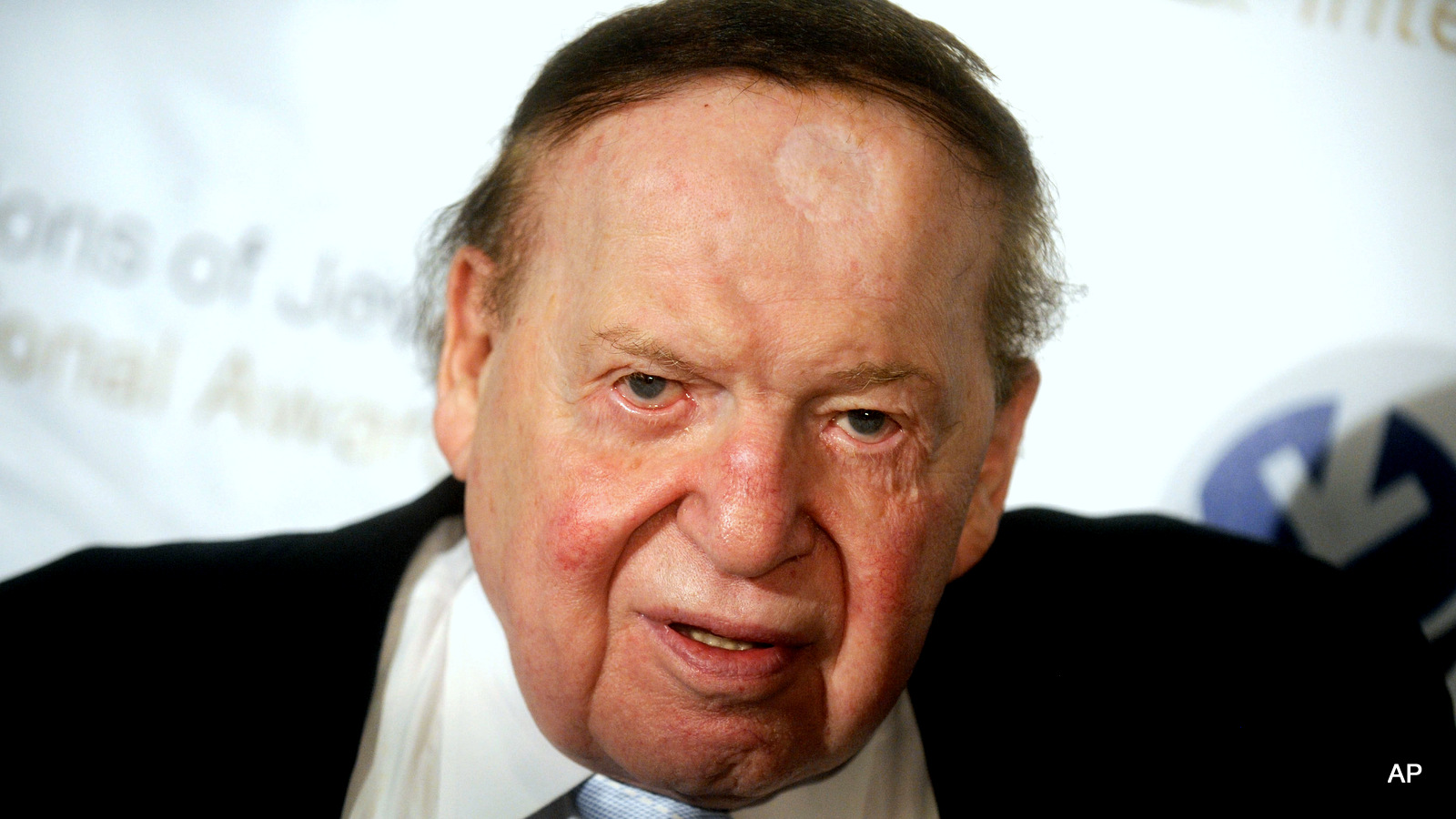
Meanwhile, political opposition and money from the far right have been burning the candle at both ends to derail a potential deal between the P5+1 and Iran.
“I’ve been around this town for about 30 years now … and I’ve never seen foreign policy debate that is being so profoundly affected by the movement of hundreds of millions of dollars in the American political system,” Jim Slattery said from the audience at the panel discussion.
Slattery was referring specifically to political contributions from Sheldon Adelson, a casino and business magnate whose net worth was recently valued at $31.4 billion by Forbes magazine.
“I think that it’s important for us to have an open debate about that,” he asserted.
Adelson publicly advocated for the Obama administration to bomb Iran with a nuclear weapon rather than negotiate with the Islamic Republic.
Speaking at an event in 2013 for This World: The Values Network, an organization whose stated mission is “to disseminate universal Jewish values in politics, culture, and media,” Adelson said:
“What I would say is, ‘Listen, you see that desert out there? I want to show you something.’ … You pick up your cellphone and you call somewhere in Nebraska, and you say, ‘Okay, let it go!’ So there’s an atomic weapon, goes over – ballistic missiles – in the middle of the desert that doesn’t hurt a soul, maybe a couple of rattlesnakes and scorpions or whatever, and then you say, ‘See! The next one is in the middle of Tehran.’”
Adelson and his wife, Miriam, contributed almost $100 million to conservative candidates in the 2012 presidential campaign, outspending any other individual or organization.
Slattery said, “I would bet right now that that movement of money is having a profound effect on the votes in the Congress, and I will be surprised if one Republican in either house votes for this agreement.”
Commenting on this dilemma of the American political landscape, Peter Beinart, who was also on the NIAC panel, said it’s “remarkable” that Republicans take Adelson’s money, or engage with him on any level at all. Beinart is a contributing editor at The Atlantic and National Journal, and a senior columnist at Haaretz, Israel’s oldest daily newspaper.
Israel: The last outpost of the West
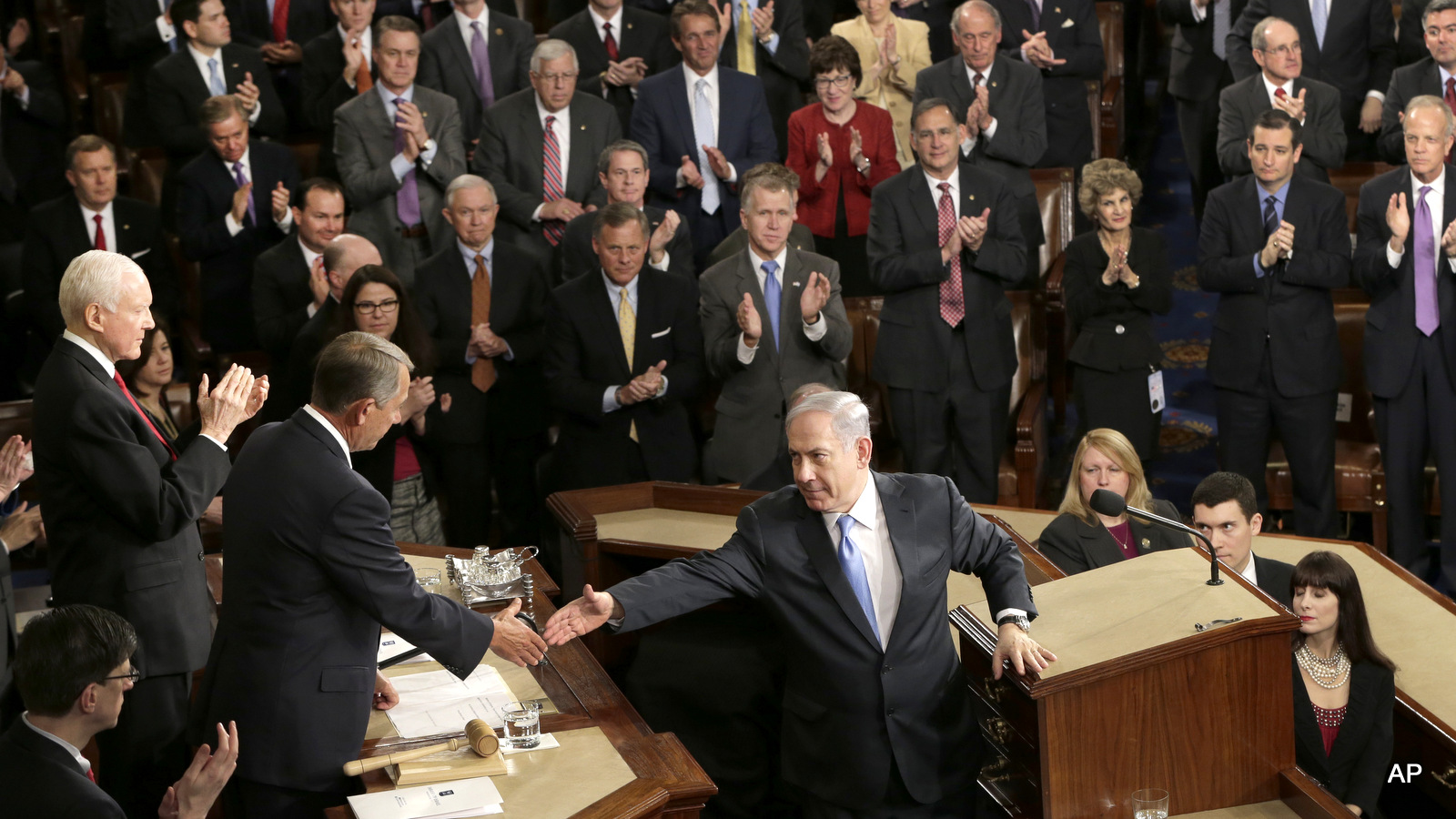
Peter Beinart added that there are deeper psychological issues at play as to why voters support right-wing candidates who ally themselves with the state of Israel and, in particular, Israeli Prime Minister Benjamin Netanyahu. He explained:
“I think that has to do with the fact that Israel is seen as the outpost of the West in the Muslim world, the ‘tip of the spear,’ the kind of the ‘canary in the coal mine,’ in a region, and amongst a religious civilization, if you want to call it that, that is perceived as hostile to … America, dangerous to America, hostile to everything we believe in, and Israel is fighting our fight on our behalf against that.”
Prior to Netanyahu’s speech to Congress, when he rallied against the nuclear deal on March 3, Bill Kristol, a neoconservative analyst and founder of The Weekly Standard magazine, likened the Israeli leader to Winston Churchill following the U.S. entry into World War II.
Kristol wrote: “When Netanyahu walks to the podium of the House of Representatives on March 3, he’ll undoubtedly have in mind an earlier speech given by a foreign leader to a joint meeting of Congress. On December 26, 1941, Winston Churchill addressed Congress.”
Kristol attempted to show that Netanyahu is, in fact, more pro-America than President Barack Obama, and by default had become the new leader of the West as Obama had ceded the role.
“Obama is very much in the mainstream of modern progressive thought in his embrace of cosmopolitanism and his distrust of [American] nationalism,” he wrote, adding:
“Netanyahu, by contrast, is a patriot and a nationalist. He’s an Israeli patriot and nationalist. But he also appreciates the historic role and accomplishments of the great nation-states of the West. … He appreciates the legacy of David Ben-Gurion—and also of Harry Truman.”
Kristol concluded:
“On March 3, something remarkable and historic will happen. The prime minister of Israel, speaking on behalf of not only his country and millions of Jews, but on behalf of the West itself, will command the world’s attention as he declares his refusal to appease the enemies of Israel and the West.”
Yet Beinart noted at the panel discussion that the pathologies of the American right don’t end there, explaining that there is a hidden anxiety among people who hold Kristol’s views about the degree to which the U.S. is still a Western country.
“In a certain kind of way,” he said, “the idea that Benjamin Netanyahu is the kind of leader that we wished we still had, is not only a commentary on your connection to Israel, but about your anxieties about what’s happening in 21st century America.”


